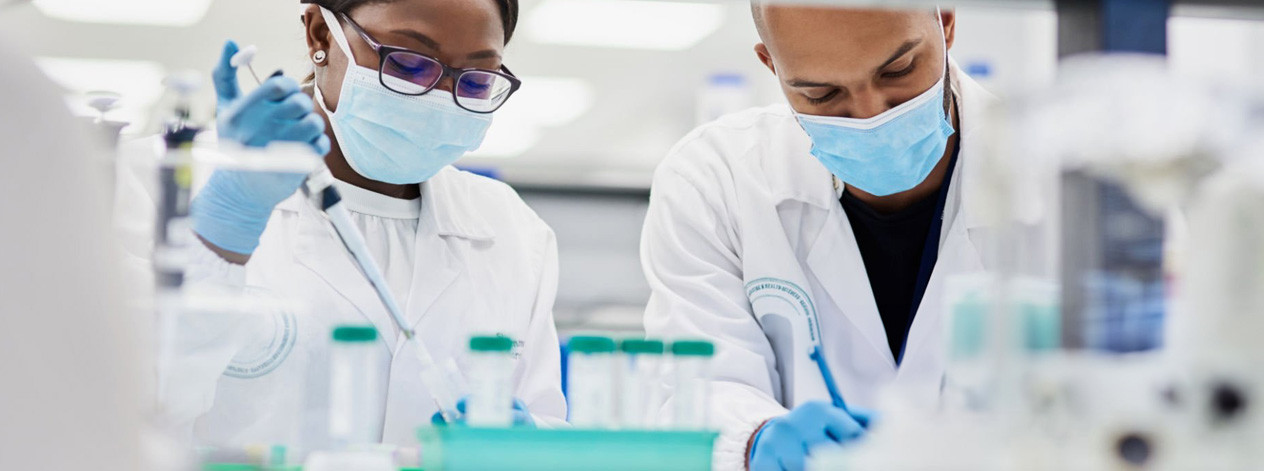Análisis de laboratorio y pruebas

Labs
Our state-of-the-art labs are where we analyze diagnostic tests and get results.
Lab tests use blood, urine, and other bodily fluids to make a diagnosis. It’s important to remember, however, that abnormal lab results don’t necessarily mean that you have cancer. To get a proper diagnosis, we use lab tests alongside other diagnostic tools, such as imaging or biopsies.
Testing
We use many different, cutting-edge tests to diagnose and monitor your condition.
Testing is an important part of your treatment journey. Not only does it help us to give you an accurate diagnosis, it also helps to monitor and adjust your treatment, minimize side effects and increase our chances of better outcomes.
Blood and urine testing
Blood and urine tests are used for many different reasons.
They are often a first port of call when it comes to detecting and diagnosing cancer. However, abnormal test results don’t necessarily mean you have cancer. And conversely, people with cancer sometimes produce totally normal results. For this reason, we use blood and urine in conjunction with other diagnostic tools to get an accurate diagnosis.
Blood and urine testing is also used to monitor treatments. They are a great way to study the effects of treatment on your body and general health. These results can then help us to adjust treatment to lessen side effects and improve outcomes.
Molecular testing
Molecular testing is a powerful and groundbreaking tool with the potential to revolutionize cancer care.
By analyzing the unique genetic markers of your cancer cells, we can better understand your particular cancer and create treatment plans tailored to your individual needs. Our team of experts uses state-of-the-art technology to identify genetic alterations in your cancer cells. This enables us to offer targeted therapies that are more effective and less harmful to healthy cells.
Molecular sequencing
Molecular sequencing is used to identify alterations in DNA to predict the risk of developing certain types of cancer.
It can also be used to monitor the growth and behavior of tumors. This is important when it comes to adjusting treatments in order to get the best outcomes.
Molecular sequencing is slightly different from genetic testing. While genetic testing looks for inherited mutations or alterations in your DNA, molecular sequencing can detect the changes that have happened during your lifetime. In this way, it is invaluable for deciding which type of treatment will be most effective.
Molecular sequencing is just one of the many ways we are using state-of-the-art technology to provide the best cancer treatment possible.
Genetic testing
Genetic testing plays a pivotal role in our commitment to delivering personalized care and targeted treatment options. By examining your unique genetic makeup, we can better understand your particular condition and create a treatment plan that is right for you.
Our team of specialized oncologists and genetic experts use state-of-the-art technology to analyze gene mutations and alterations that may be contributing to the growth and behavior of your cancer. This information allows us to offer therapies that are unique to your genetic profile, increasing the potential for successful outcomes and minimizing side effects.
